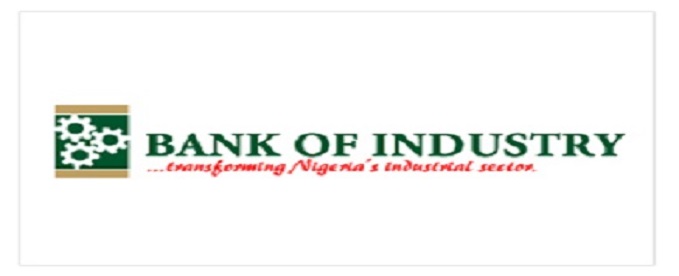E-Financial
Banks, FinTech Providers Support NITRA 3rd Quarterly Forum

More players in the ICT, Banking, and FinTech sectors of the Nigerian economy have continued to throw their weight behind the Third Quarterly Forum of the Nigeria Information Technology Reporters Association (NITRA) billed for Friday, October 13, 2017.
The latest to declare their support for the flagship ICT reporters association quarterly seminar are Global Accelerex, an effective and secure payment solutions provider; Yudala, fast rising e-commerce operator and Nigeria’s first ever composite online and retail chain; and CWG Plc, a total ICT solutions provider.
Others are three of Nigeria’s leading IT-driven commercial banks namely, Fidelity Bank Plc, Wema Bank Plc and Zenith Bank Plc.
The Nigeria Information Technology Reporters Association (NITRA), an umbrella body for journalists reporting information and communications technology in Nigeria is organising the third edition of its quarterly forum entitled “Digital Payment: Prospects and Challenges of a Financially Inclusive Nigeria.”
The event which holds this Friday at the R-Café Event Centre on Isaac John Street, GRA, Ikeja, Lagos, will not only highlight the challenges and opportunities in the FinTech space in Nigeria, but will also provide knowledge and networking platform that will bring the Nigeria Fintech industry at par with its counterparts across the globe.
At the event, the Banking, ICT and FinTech industries will be offered an excellent opportunity to showcase some of their achievements before the largest gathering of the sectors players under one roof as well as share their contributions to Digital Payments in addition to efforts towards actualising financial inclusion in the country.
Mr. Austin Okere, Founder/Vice Chairman of CWG Plc, had since accepted to chair the one-day event.
It should be noted that digital disruption has been changing how traditional banking services, payments, and remittances are now offered in the digital economy, as almost all sectors of financial services are being re-imagined by non-traditional providers and FinTechs, while the traditional incumbent providers are reinventing themselves very quickly to understand better, the puzzle presented by FinTech and how they can leverage on the digital movement.
E-Financial
Nigeria Still Open Crypto Business despite $80Bn Lawsuit against Binance – FG

Federal government is still open to crypto businesses operating in the country despite the ongoing lawsuit against Binance, crypto exchange and the high-profile detention of Tigran Gambaryan, Binance executive.

Mohammed Idris, minister of Information, said Friday, that the lawsuit was part of the government’s effort to strengthen regulations, not to target specific companies.
“This is part of the effort to strengthen our laws, not to cripple anybody. We are ensuring that no one comes and operates without regulation,” Idris told the outlet.
Nigeria filed an $81.5 billion lawsuit against Binance in February, claiming the exchange crashed Nigeria’s local currency, the naira, and said that Binance owed $2 billion in back taxes as the Nigerian government continues to grapple with sensible crypto policy.
“We are ensuring that no one comes and operates without regulation,” Idris said, noting that other crypto companies in Nigeria continue to operate without facing legal challenges.
“There are other companies operating in the crypto sector in Nigeria, you don’t see them [facing charges],” he added.
Idris also highlighted concerns over the potential misuse of cryptocurrency for illicit activities, including terrorism financing, money laundering, and tax evasion.
He pointed out that the issue of illicit financial flows is a global concern, stressing the importance of international cooperation to ensure that transactions in the crypto space align with financial regulations.
“It is not just Nigeria. Internationally it’s also important to address illicit financial flows. You can’t have a huge amount of transactions that do not meet the operations of financial dealers,” Idris said.
E-Financial
FIRS Partners Flutterwave for Digital Payment Collection

Flutterwave, Africa’s leading payments technology company, is now enabling digital tax collections for the Federal Inland Revenue Service (FIRS), making it one of the few fintechs supporting the government in modernizing tax payments.

L-R: Mr Gbenga Badejo; Mrs. Olufunmilayo Olaniyi, Senior Vice President, Business Development, Flutterwave; Dr. Zacch Adedeji, Chairman, FIRS; Mr. Olugbenga ‘GB’ Agboola, Founder and CEO, Flutterwave and Mr Oluwabankole Falade, Chief Legal, Regulatory Affairs & Public Policy Officer.
This development allows the FIRS to leverage Flutterwave’s seamless and secure payment infrastructure to collect taxes, levies, and other payments from businesses and individuals across Nigeria.
Flutterwave’s payment technology simplifies tax payments for individuals, Small and Medium Enterprises (SMEs), and large corporations, ensuring a fast, transparent, and accessible tax payment experience.
By integrating with the FIRS, Flutterwave provides diverse digital payment options, real-time reporting and tracking, offline tax payment capabilities, and a secure payment system for Nigerians both at home and in the diaspora.
Olugbenga ‘GB’ Agboola, CEO of Flutterwave, stated: “At Flutterwave, we are committed to leveraging technology to drive efficiency and economic growth. By making tax payments easier and more transparent, we are helping to digitize government collections and support national development which is in line with our mission.”
This integration also brings key advantages, including real-time reporting and tracking of payments, diverse digital and mobile payment options, offline tax payment capabilities, enhanced transparency for both taxpayers and the FIRS, and providing Nigerians in the diaspora an avenue to seamlessly pay their taxes.
These advancements align with the commitment of the Federal Inland Revenue Service to modernize government collections and improving user experience.
Olufunmilayo Olaniyi, Senior Vice President, Business Development at Flutterwave, emphasized the company’s dedication to serving Nigerians: “Working with the public sector is pivotal to shaping the future of digital payments in Nigeria. This underscores our commitment to delivering solutions that serve Nigerians better, foster trust, and drive impactful innovation through strategic collaboration.”
With its proven track record across Africa, Flutterwave continues to play a key role in public sector digitization efforts in Nigeria.
In 2024, Flutterwave also partnered with the Economic and Financial Crimes Commission (EFCC) to establish a cybercrime research center, reinforcing its dedication to financial security and innovation.
As one of the primary fintechs facilitating government tax collections, Flutterwave remains at the forefront of financial technology solutions that enhance business operations and enable growth across Nigeria and beyond.
E-Financial
BOI Launches N10Bn GLOW Fund for Female Entrepreneurs

Bank of Industry (BOI) has launched a special intervention programme, Project Guaranteed Loans for Women (GLOW), valued at ₦10 billion to support female entrepreneurs across the country.

The initiative, launched in collaboration with the Women Chamber of Commerce, Industry, Mines, and Agriculture (WCCIMA), seeks to bridge the financial inclusion gap for women-led businesses.
Dr. Olasupo Olusi, managing director, BoI, said at the launch in Lagos, yesterday, the Nigeria leads the world in women’s entrepreneurial activity, with 23 million female entrepreneurs accounting for 41 per cent of the country’s micro-businesses.
Olusi decried that access to finance remained a major challenge for women looking to scale their businesses.
He, however, noted that BOI was committed to supporting female entrepreneurs with strategic funding initiatives designed to drive economic growth and innovation.
According to him, the bank’s 2025-2027 strategy prioritises gender-focused financial inclusion, targeting critical financing gaps and exploring actionable solutions for female-led businesses.
“Women entrepreneurs drive innovation, create jobs, and strengthen communities. However, financing remains one of their biggest challenges.
“Our goal today is to listen, simplify financing processes, and build a strong network that fosters sustainable growth,” Olusi stated.
He also reaffirmed BOI’s commitment to providing financial solutions for women-led businesses in partnership with the Women Chamber of Commerce, Industry, Mines, and Agriculture (WCCIMA).
Olusi revealed that the ₦10 billion GLOW Fund was established in collaboration with WCCIMA to enhance access to capital for female entrepreneurs.
Additionally, he outlined other BOI financial interventions, including: the BOI Impact Fund, $2 million investment in Aruwa Capital, a female-led investment firm and $50 million partial risk guarantee partnership with the African Guarantee Fund
Dr Weyinmi Eribo, director general, WCCIMA, emphasised the need for sector-specific financing tailored to women-led businesses.
She pointed out that while women-owned businesses were among the fastest-growing in Nigeria, the financial sector had yet to fully recognise them as a critical market segment.
Eribo noted that the financing gap for women-owned businesses exceeded $42 billion, describing this as a missed opportunity for national economic growth, job creation, and poverty reduction.
She warned that without intentional, tailored financing, women-led businesses would struggle to scale and compete effectively.
“Women entrepreneurs account for over 40 per cent of Nigeria’s small and medium-sized enterprises (SMEs), yet many remain excluded from mainstream financing due to systemic barriers,” she stated.
Eribo commended BOI for launching the GLOW Fund and acknowledged the contributions of the bank’s gender desk team.
She pledged that WCCIMA, in partnership with BOI, would ensure that these funding initiatives translated into measurable impacts for female entrepreneurs.

 Broadcasting2 days ago
Broadcasting2 days agoPublic Outrage, Legal Threats as Abuja Council Demands N500, 000 as TV Levy

 E-Financial2 days ago
E-Financial2 days agoFIRS Partners Flutterwave for Digital Payment Collection

 Telecom2 days ago
Telecom2 days agoNigeria Charts New Course to Bridge Gender Digital Divide at UN’s CSW69

 General News2 days ago
General News2 days agoNIN Enrolment Hits 117.3m – NIMC

 E-Financial2 days ago
E-Financial2 days agoZuriel Oduwole, Sterling One Foundation, and Sanwo-Olu Champion Gender Equality and Youth Empowerment

 E-Financial2 days ago
E-Financial2 days agoBOI Launches N10Bn GLOW Fund for Female Entrepreneurs

 News2 days ago
News2 days agoFG Invests N2.5Bn in Satellite Surveillance System to Revolutionise Mining Sector

 News2 days ago
News2 days agoTinubu Appoints Olukayode Gregory Pioneer Registrar of New Federal University

























